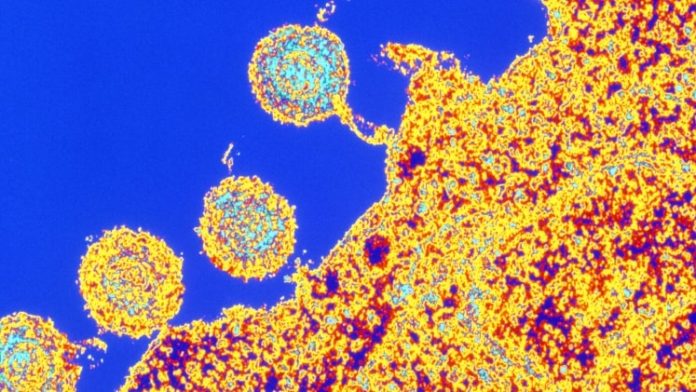The covid19 has impacted people’s mental and physical health around the world. And also, it has had an impact on every society of the world. While there is no way to tell what the economic damage that occurred from the global coronavirus pandemic(covid19) will be, there is a widespread agreement among world economists that it will have severe many negative impacts on the worldwide economy. The covid19 virus has had a significant effect on people’s lives worldwide.
Like it, many people in the USA and worldwide got affected with herpes. And there is no cure for this herpes virus, but prevention can help. Billions of people worldwide live with the herpes virus. About half a billion people aged 15 to 49 have genital herpes infections; these herpes infections can lead to recurring, often blisters, and painful, genital infections. According to WHO, in 2016, two-thirds of the world’s population under 50, about 3.7 billion herpes simplex virus commonly appears as cold sores around the mouth. There are mainly two types of herpes HSV virus:
- HSV-1
HSV-1 is most often likely to infections of the mouth.
- HSV-2
This type is most linked to genital herpes infections.
Both these types of viruses can infect to mouth and genital infections. Once infected with the virus, a person will have the herpes simplex virus for the rest of their life. When the herpes infected virus is not active, it is dormant in the group of nerve cells. While some people with herpes never have symptoms, others have a period of outbreaks of infections.
Genital Herpes-causes, symptoms and Treatments
People with herpes are a common STI that occurs most often near your sex organs. Although there is no cure for herpes, safe practices are the key to prevention and preventing its spread and treating the outbreak. The herpes simplex virus causes genital herpes, and it’s often spread through oral, vaginal, and anal sex.
It is one of several itchy, blistering diseases caused by a group of viruses named herpes virus. It is easier to pass from men to women than from women to men, more American women than men have it? The first time you contact the herpes virus and get the virus symptoms is called a primary outbreak, and the first outbreak can last longer and be more severe than future outbreaks.
Coronavirus is a mild infection for most people, and even many don’t know they are contracted. And similarly, many people never experienced a herpes outbreak.
Herpes Some Different Symptoms
Different things can trigger herpes, including lack of sleep, alcohol use, skin irritation, and stressful events.
Even these symptoms can be sometimes reduced by using out, getting enough sleep, drinking water, using lube, eating well, and using coping strategies for stress.
COVID19 Omicron Effects
The world has experienced a huge wave of infection with the omicron variant. There are around 125 million omicron infections a day across the globe. These massive infection levels suggest that more than 50% of the world has been affected by the virus omicron—the end of month November 2021 and the end of March 2022. As with the large proportion of the world continued increase in the covid19 vaccination, the use of third booster dose in many countries, and the level of infection acquired immunity, for some weeks and months, the world should show the low level of virus transmission.
What Does Herpes and Covid19 in Common?
Many experts say most viruses have different treatments but share similar elements.
Herpes and Covid19 asymptomatic symptoms
Many people are affected with covid19, but they don’t know as they have it because covid19 is asymptomatic, whereas affected people with Herpes ( HSV1 and HSV2) are also sometimes asymptomatic. It is noticed that many people with herpes affected with the virus still don’t know they are involved.
Herpes and Covid: Doesn’t show a Noticeable sign sometimes.
Coronavirus, to some people, takes a long time to show any symptom or a noticeable sign. And, also some people, even though they don’t know aw they were infected with the covid19 virus, make it impossible for you to learn from whom you have transmitted the virus. Similarly, people with herpes may also take a long time to show a noticeable sign, and some never show any sign or a symptom.
Herpes and covid19 High Risk of Spread
The coronavirus is transmitted when it is close to someone, which means when you are closely contacting someone, or in sexual activities with a partner, there is a high risk of spreading the virus. Similarly, for herpes, there is a higher risk of transmission of this virus through closed contact or sexual activity with your partner. Contracting with herpes and covid19 doesn’t mean you can never enjoy partnered sexual activities again. However, precautions and key practices can limit the spread of the virus.
Herpes and Covid 19- spread During Childbirth
During pregnancy, people with herpes who are pregnant and affected with coronavirus might need to take some additional usable precautions to reduce the risk of herpes virus and covid19 to their new born baby. But many mothers have a natural childbirth without transmitting herpes and covid19 to their child, with some additional considerations and guidance from your healthcare providers.
Herpes and Covid19 spread
The spread of coronavirus with common issues and the spread of the herpes virus are similar to contracting with surfaces or intimate objects or blaming infections on people’s toilet seats; it shows that herpes can be contracted with a toilet seat. However, unlike the coronavirus on surfaces, herpes is a very dangerous virus.
Conclusion
There are several similarities between the global pandemic Covid and people with herpes. According to most experts, although covid19 might not affect for a long time by the virus, herpes is non–curable, and these most viruses share some same elements. Therefore, safe practices are the key to prevention, reducing the virus spread, and treating the outbreak.
Read more: COVID-19 and Herpes Simplex Virus Infection: A Cross-Sectional Study

